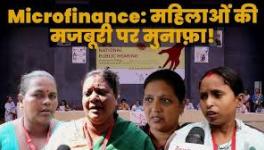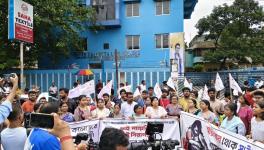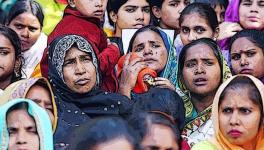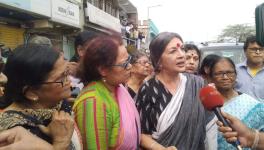Fearless Godavari Parulekar Led the Warli Tribes in the Freedom Movement
When we hear the phrase “freedom fighter”, we often imagine a male freedom fighter. But nearly half of the freedom fighters involved in the struggle for Independence were women who participated in equal numbers, and strove fearlessly to attain freedom from the British colonisers.
The All India Democratic Women’s Association (AIDWA) has compiled a list of Communist women freedom fighters for an exhibition that will be touring across the country. In the run up to the 70th Independence Day of India, the Indian Cultural Forum will share the stories of some of these women everyday.
Godavari Parulekar
Born on August 14, 1907, Godavari Parulekar was the first woman law graduate in Maharashtra. She was active in the student movement against British rule and was irresistibly drawn to the freedom struggle and plunged into individual satyagraha, for which she was convicted by the British regime in 1932. After her release from jail, her father, who was a political moderate, was incensed and refused to accept her, thus leading to a severance of family ties.
Godavari then came to Mumbai, where she took up social service in the Servants of India Society, founded by Gopal Krishna Gokhale in 1905, in the early 1930s. She became the first woman to be inducted as a life member of the Society. Through the Servants of India Society, she organised a massive adult literacy campaign among the working class areas of Mumbai between 1937 and 1938, this being perhaps the first ever organised literacy campaign in Maharashtra. It was so successful that the Congress chief minister of Bombay state, B.G. Kher, offered to make her the chairperson of a new department of adult literacy to be started by the state government. But by this time Godavari was already becoming more radical in her views, and while declining the offer, she is said to have told the chief minister in her inimitable style that “there are some people yet who cannot be purchased”! She led a 10,000-strong demonstration of domestic workers in 1938.
Then began Godavari Parulekar's work in the trade union movement. She made her mark by organising a new section of the workers, that of domestic workers. And in 1938, she led an astounding 10,000-strong demonstration of domestic workers on the same day that the working class of Mumbai condemned the anti-worker Black Act.
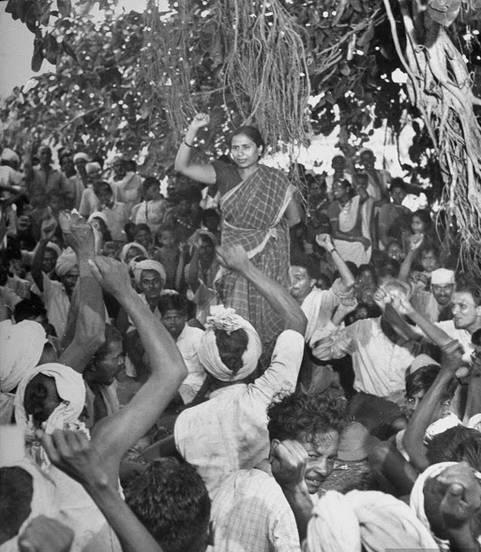
Godavari Parulekar, with Adivasi comrades in Thane district / Image Courtesy: Old Indian Photos
Godavari Gokhale got married to Shamrao Parulekar on 24 May 1939, around the same time they joined the Communist Party. The Parulekars helped in organising the first anti-war strike of the working class in Mumbai. On March 3, 1940, the textile workers’ strike for increased dearness allowance began in Mumbai. Within a week, top leaders of the Communist Party, like B.T. Ranadive, S.A. Dange, S.S. Mirajkar and others were put behind bars. The next week, Shamrao and other leaders were also arrested for their anti-war speeches. It was then left to Godavari and other comrades to lead the 40-day textile workers’ strike, a task that she fulfilled with grit and determination. Soon after this, Godavari was also detained for her anti-war propaganda.
After their release from jail in 1942, Shamrao and Godavari completely switched over to organising the peasantry, to which they devoted the rest of their lives. Godavari was elected the first Joint Secretary of the Maharashtra Rajya Kisan Sabha (Maharashtra wing of AIKS) at its foundation conference in January 1945. Godavari and Shamrao were a unique revolutionary team, leading the Warli Adivasi Revolt in Umbergaon, Dahanu, and Palghar talukas (sub-districts) in the years immediately before independence, 1945 to 1947. She later went on to become the President of the All India Kisan Sabha, the only woman to hold this position. She was also the member of the CPI(M) Central Committee for a quarter century.
After Independence, the Parulekars led the armed struggle of the Communist Party for the liberation of Dadra and Nagarhaveli from Portuguese rule in 1954. In the late 1950s, Godavari led the Samyukta Maharashtra struggle in Thane district until the formation of Maharashtra state in 1960. Shamrao died while in detention in 1965. Godavari was also in the same jail at that time. She completed the celebrated work Adivasis Revolt, her account of the 1945-1947 revolt of the adivasis of the Thana district against the landlords, while still in jail after Shamrao's death.
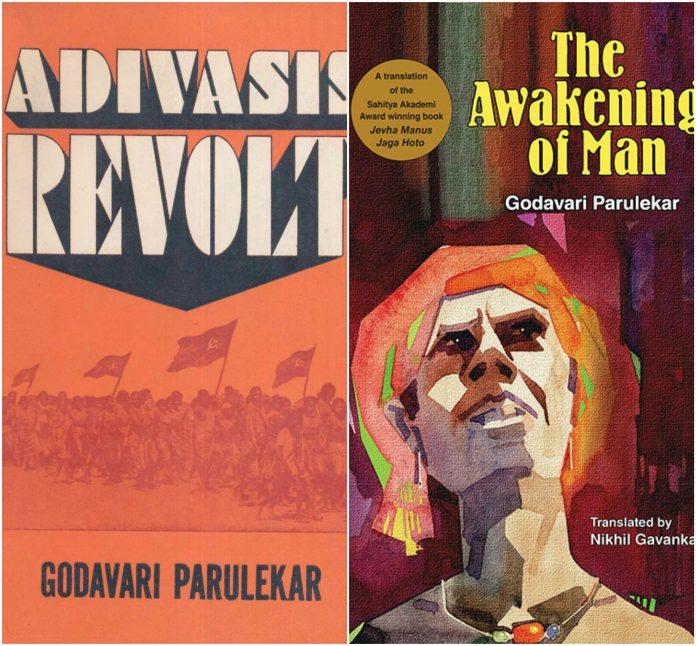
Covers of books authored by Godavari Parulekar
A century ago, the Adivasis were the owners of all the land, but they were gradually expropriated of all that they owned by the landlords and moneylenders who were fully backed by the British regime. By 1945, just 6.8 per cent of cultivated land in Dahanu tehsil and 2.2 per cent of cultivated land in Umbargaon tehsil was held by adivasis, the rest being owned by the rapacious landlords and moneylenders. Exploitation and oppression by forest contractors and the government forest department went on relentlessly. The courts, police and administration were completely controlled by landlords. There was no redress anywhere. All this led to grinding poverty of the lakhs of adivasis on the one hand and to untold wealth of the handful of landlords on the other. As a result, the tyranny and oppression of landlords knew no bounds. In Adivasis Revolt, Godavari Parulekar narrates some shocking instances of this torture in the process of land and recource grab in Colonial India.
In her lifetime, Godavari Parulekar held several important positions in various left organisations. She was the secretary of the Maharashtra state unit of the CPI(M) from 1983 to 1986. She became the national working president of the AIDWA and in 2001, she became its patron. In 1975, she was elected to the General Council of the Centre of Indian Trade Unions and in 1979, she became its Vice President. Besides these, she was elected Corporator of the Bombay Municipal Corporation for 19 years from 1961.
Disclaimer: The views expressed here are the author's personal views, and do not necessarily represent the views of Newsclick.
Get the latest reports & analysis with people's perspective on Protests, movements & deep analytical videos, discussions of the current affairs in your Telegram app. Subscribe to NewsClick's Telegram channel & get Real-Time updates on stories, as they get published on our website.









